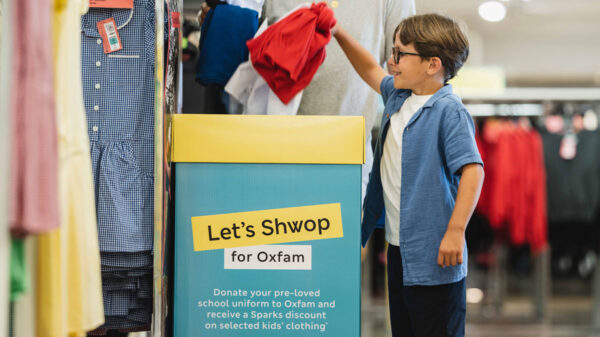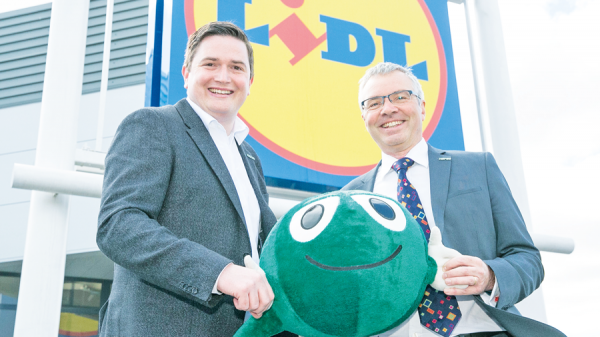- New research reveals the extent to which abusers target vulnerabilities in children
- Risks they face while using social networks are likely to be exacerbated by coronavirus restrictions
- NSPCC is urging tech giants to prioritise children as lockdown has created a ‘perfect storm’ for groomers to target young people
Children who are lonely, like attention and rely on social media are more than twice as likely to be groomed online, the NSPCC can reveal.
The charity’s research shows for the first time how certain characteristics make children more vulnerable to being abused on social media.
It comes after the charity warned coronavirus has created the perfect storm for offenders looking to target lonely, socially isolated children as they increasingly spend time online.
More than 2,000 young people, aged between 11 and 17, were surveyed by the NSPCC last year, with 4% confirming they had sent, received or been asked to send sexual messages to an adult online.
This doubled to 9% for respondents with characteristics that may make them vulnerable, including loneliness, greater usage of social media, unhappiness and liking attention.
Abusers will often target children who have expressed vulnerability online, mainly through sharing thoughts and feelings in social media posts and live-streams, which many children are likely to be doing now.
The survey also revealed that 9% of respondents had sent, received or been asked to send sexual messages to another young person, which more than doubled to 20% for those with the same vulnerable characteristics.
Self-generated images account for a growing proportion of child abuse images, whether these are shared on a consensual basis or are the result of peer-to-peer grooming. But if that gets shared, the sender loses control of how it’s used and leaves the child exposed to bullying, blackmail, online grooming and abuse.
Louise* was nine-years-old when she was first coerced into sending a sexually explicit image of herself to a man. Then, when she was 12, she was sexually assaulted by a young person she met online and exploited by another she thought she was in a relationship with.
“My loneliness was definitely exploited on more than one occasion. Comments could be from anything to an innocent “I’m here if you need to chat” to more manipulative ways such as “you know I’m the only one who cares for you, you’ve told me you’re lonely and I’ve always been there haven’t I?”.
“And in return for being there for you, there was always other expectations, even if they weren’t asked for directly.”
Childline counselling sessions have revealed young people are feeling lonely and anxious during the Government lockdown, and children are spending more time online to stay in touch with friends since schools have closed.
On top of that, tech firms are facing challenges in being able to maintain content moderation, with fewer human resources available to identify and disrupt child abuse on their sites.
The NCA knows from online chats that offenders are discussing opportunities to abuse children during the crisis and Europol has seen a surge in attempts by offenders to contact young people on social media.
The threat of online grooming identified by this research underlines the urgent need for Government to press ahead with an Online Harms Bill, which would place a legal Duty of Care on tech firms to tackle abuse.
Andy Burrows, NSPCC Head of Child Safety Online Policy, said: “Through this survey, we have heard the voices of lonely, vulnerable children and discovered how much more exposed they are to online abuse.
“It’s particularly worrying during the lockdown as it is clear now that it has never been easier for abusers to exploit lonely children who are spending a lot of time online.
“This crisis has exposed the child protection cracks that were already there in social networks so now more than ever tech firms must step up and ensure their services are safe.”
The NSPCC is calling for tech firms to:
- Prioritise their available moderation resources on immediate child abuse risks.
- Share with Government and NGOs the volumes of child abuse referrals they make during this period to the National Center for Missing and Exploited Children (NCMEC), in order track and identify child abuse risks.
- Share intelligence on emerging and evolving risks with other platforms and law enforcement, so platforms can understand the agile and constantly changing grooming threat.
Parents and carers also have an important role to play by being aware of the online risks and having regular conversations with their child about what they are doing online.
New advice on apps such as Zoom and Houseparty can be accessed on the co-created NSPCC and O2 Net Aware site which helps parents understand how to minimise the potential risks and ensure that online resources can be an important, and safe, part of coping with the implications of social distancing.
How can we help to keep our children safe online?
With more young people than ever spending lots of time online, it has never been more important that they are protected from harmful content. The NSPCC and O2’s co-created site Net Aware has the following tips for parents on how they can help to keep their children safe online.
- With the internet playing a vital role keeping children in touch with family, friends and helping with school work – you might need to be a bit more flexible with the normal rules, like how long you let your child play games or message friends. Try to understand what they are doing online, rather than just the time they are spending.
- It can be helpful to supervise children when they’re video-chatting with friends, but it can also be time consuming! Check-in with other parents and see if you can take it in turns to support the children when they are chatting.
- Try to have regular but relaxed conversations with your child about what apps and games they are using, what they like about them and how they can stay safe.
- Explain that you understand the internet is a great place to play, create, learn and connect. But remind them they can talk to you if they see anything that upsets or worries them. Or they can talk to a Childline counsellor.
- Help your child think about what they share online and who sees it. Compare it to what they would be happy to share offline. Remind them that they shouldn’t share personal information, photos of their body or hurtful messages.
- Take the time to explore the new apps and games together and learn how to use the different safety features. If you use parental controls, explain your reasons why.
- We’ve created a family agreement template so you can decide on some ground rules for both of you. Once you’ve agreed them, why not stick it on your fridge or wall and come back to it regularly to see if it’s working?
- Try to remember – a lot of young people like apps, sites and games because they’re fun, interesting or creative, but also because they’re parent free! If you spend too much time following your child around or restricting what they can do, they might stop talking to you about what they do online – that’s why it’s best to have regular conversations but not impose on their privacy.
The joint NSPCC and O2 resource Net Aware can help parents and children understand the risks on the latest sites, apps and games and be a helpful part of coping with self-isolation.
Parents can also ring the O2 & NSPCC advice line to speak directly with one of their experts on 0808 800 5002 from 10:00am 16:00pm.
Without the support of teachers, children should know they can turn to parents or Childline, if they have any worries or concerns.







